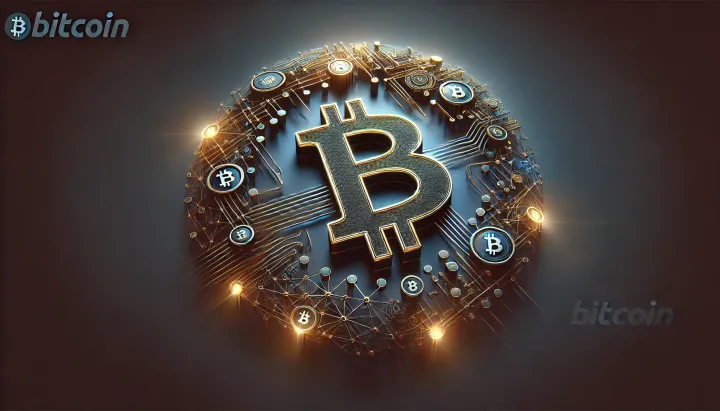Nostr’s Decentralized Potential: Challenges, Innovations, and Opportunities
The October 30, 2024 episode of the Bitcoin Review Podcast features a panel discussion on the evolving landscape of Nostr, a decentralized, permissionless protocol with potential applications across finance, identity, and social media.

- My 'briefing notes' summarize the content of podcast episodes; they do not reflect my own views.
- They contain (1) a summary of podcast content, (2) potential information gaps, and (3) some speculative views on wider implications.
- Pay attention to broadcast dates (I often summarize older episodes)
- Some episodes I summarize may be sponsored: don't trust, verify, if the information you are looking for is to be used for decision-making.
Summary
The October 30, 2024 episode of the Bitcoin Review podcast featuresa panel discussion on Nostr’s future in decentralization, funding challenges, and protocol scalability. As a decentralized, Bitcoin-compatible protocol, Nostr could redefine online identity, peer-to-peer marketplaces, and digital trust. The discussion highlights Nostr’s growing influence, driven by Bitcoiners and supported by early venture interest, while emphasizing the need for scalable funding, innovative business models, and robust technical improvements.
Take-Home Messages
- Sustainable Funding Critical for Growth. Nostr’s reliance on grants highlights a need for reliable funding to support development beyond early Bitcoin-backed contributions.
- Empowering Users with Digital Identity. Nostr’s identity system, based on Bitcoin keys, offers a secure, user-controlled model distinct from centralized social platforms.
- Open-source Models Require Innovation. Successful monetization on Nostr hinges on developing reputation-based revenue models, emphasizing brand trust over traditional walled gardens.
- Web of Trust as a Misinformation Defense. Implementing web of trust mechanisms can enhance user credibility, helping verify content and reducing misinformation.
- AI and Automation as Catalysts for Growth. Nostr’s flexibility for integrating AI-driven agents provides a potential growth path, adding value to peer-to-peer interactions and marketplaces.
Overview
In this October 30, 2024 episode of the Bitcoin Review Podcast episode features a panel discussion on Nostr’s emerging role as a decentralized, open-source protocol. Nostr’s early funding, heavily supported by Bitcoin enthusiasts, primarily relies on grants and smaller venture capital rounds. This funding strategy reveals both an opportunity and a limitation, as sustainable growth will likely require broader sources and innovative models that align with open-source principles.
The panel sees Nostr as a foundation for permissionless social interaction and identity management, using the familiar framework of Bitcoin keys to enable user-controlled digital identities. Nostr’s focus on decentralization, particularly in contrast to traditional social media, is expected to attract more users as it develops a reputation for empowering individuals with greater control over their data and interactions. However, with scalability issues and limited funding, there’s a consensus on the need for technical and financial adaptations to reach a broader audience.
Despite its open-source advantages, Nostr faces challenges in developing profitable business models. Some panel members discuss the value of brand and reputation, arguing that successful monetization may depend on user loyalty and reputation-based revenue strategies. They emphasize how brands could serve as “trust anchors,” providing credibility in an ecosystem where the code is publicly accessible and forkable.
Lastly, the the panel explore Nostr’s potential in AI and automated services, where permissionless digital identity and open protocols could allow peer-to-peer interactions to evolve, creating a robust environment for decentralized marketplaces, content verification, and data-sharing. They conclude that Nostr, despite its early-stage challenges, holds promise as a self-sovereign network that aligns with Bitcoin’s decentralization ethos.
Stakeholder Perspectives
- Developers: Open-source structure offers flexibility for innovation, though developers seek sustainable funding for long-term growth.
- Investors: Early-stage venture funds see long-term value in Nostr’s decentralized model, though profitability challenges remain due to non-traditional business structures.
- Early Bitcoin Adopters: Bitcoiners support Nostr for its censorship resistance and digital sovereignty; however, diversification beyond this community is essential to expanding its user base.
- Policy Analysts: Nostr’s decentralized structure raises regulatory questions regarding identity verification and misinformation control, presenting challenges for traditional oversight.
Implications
Nostr’s decentralized model may impact digital networks by fostering user-controlled, trust-based interactions. For policymakers, its self-sovereign design challenges conventional regulation models, highlighting the need for adaptive regulatory approaches. Industry participants can leverage Nostr’s structure to develop peer-to-peer services, marketplaces, and ethical advertising, with trust-based monetization strategies offering new avenues for open-source projects.
For users, Nostr’s potential to verify identity and limit misinformation could create a secure and reliable internet ecosystem. By establishing user-focused identity verification, Nostr may lead to an era of personalized online experiences, free from centralized control. Successful scaling and diversification are critical, as Nostr’s integration of AI-driven services offers additional potential for peer-to-peer interactions and digital verification solutions.
Future Outlook
Nostr’s potential as a decentralized protocol relies on achieving sustainable growth and expanding its user appeal. Funding remains a challenge, with grants and community contributions insufficient for long-term viability. If Nostr can develop scalable technical solutions and effective monetization models, it could offer unique opportunities in decentralized identity, peer-to-peer marketplaces, and digital trust.
Nostr’s adaptability for AI and automation may further extend its applications, supporting data verification and identity management solutions in a decentralized context. For Nostr to fulfill its promise, it must attract a diverse user base, refine its technical capabilities, and demonstrate the viability of decentralized monetization strategies.
Information Gaps
- What innovative funding models can support Nostr’s open-source development long-term? Given Nostr’s current reliance on grants and community funding, sustainable models are needed to stabilize its development environment, enabling it to grow without overdependence on limited resources.
- Which viable revenue models are most likely to succeed in an open-source, decentralized ecosystem like Nostr? Identifying feasible revenue strategies will help Nostr achieve self-sufficiency, attract entrepreneurs, and encourage further development while maintaining decentralization.
- What strategies can help Nostr overcome the “network effect” hurdle to reach a critical mass of users? Effective outreach methods are essential for Nostr’s success, helping expand its user base beyond Bitcoiners and creating a more diverse ecosystem for open-source interaction.
- What mechanisms within Nostr can help prevent misinformation and ensure user trust? Robust trust mechanisms are key for Nostr’s utility, with “web of trust” strategies potentially improving credibility and reducing misinformation.
- What technical improvements are required for Nostr to scale effectively with increased user adoption? Addressing Nostr’s technical needs is critical for supporting a larger user base and ensuring the network’s operational success in a decentralized structure.
Broader Implications
Open-source Monetization Models
The challenge of generating revenue on Nostr’s open protocol calls for new, user-centric monetization approaches that balance profit with decentralization. By fostering brand-based trust and allowing users to support creators directly, Nostr could inspire sustainable models that attract wider participation without centralized control. This evolution may influence broader open-source projects, setting standards for ethical monetization.
Bitcoin and Peer-to-peer Marketplaces
Nostr’s integration with Bitcoin presents opportunities for decentralized peer-to-peer marketplaces, leveraging Bitcoin’s payment system for direct, user-controlled transactions. This structure could reduce transaction costs and barriers, enabling commerce free from traditional financial systems and fostering a new wave of digital trade. Success here may establish Bitcoin as a primary currency for decentralized digital markets.
Web of Trust and Digital Authenticity
Nostr’s potential to implement a “web of trust” could redefine online credibility by allowing users to verify identities and content within a trusted network. This approach would combat misinformation and build trust in digital interactions, which is increasingly essential as AI-generated content proliferates. A trusted, user-verified internet could influence other platforms to adopt decentralized authenticity models.
AI and Autonomous Agent Integration
Nostr’s compatibility with AI and autonomous agents could advance digital interaction by supporting peer-to-peer services, data verification, and personal AI tools. This integration might open avenues for creating agent-driven marketplaces and customized services, adding layers of functionality to the decentralized network. Nostr’s progress here could spark broader interest in agent-based systems within decentralized ecosystems.



Comments ()